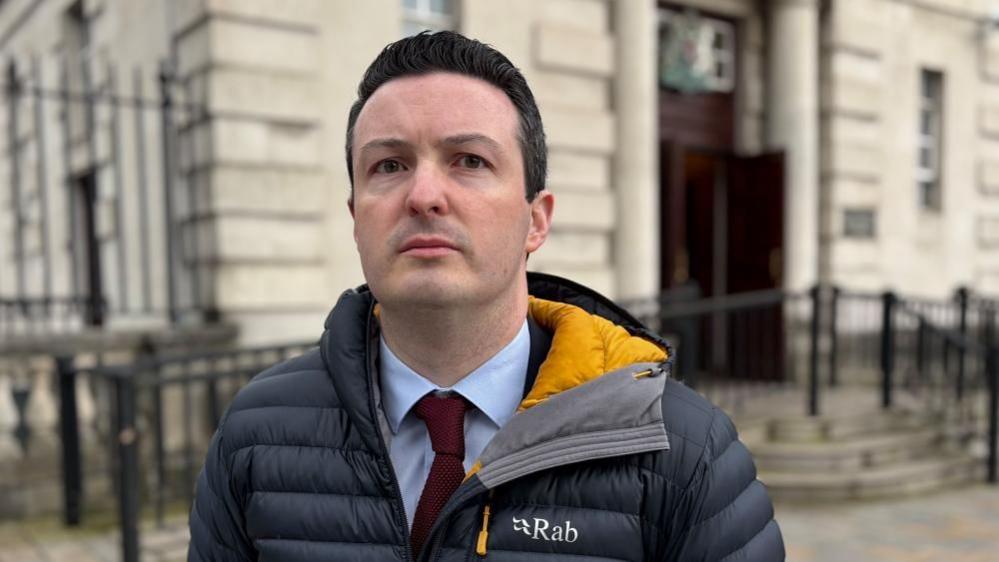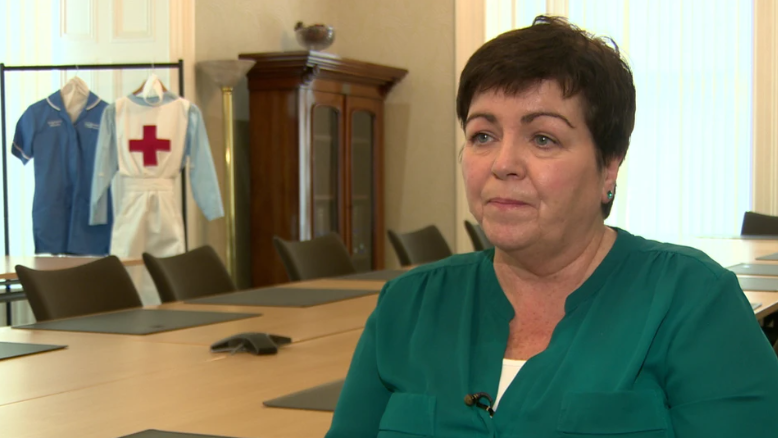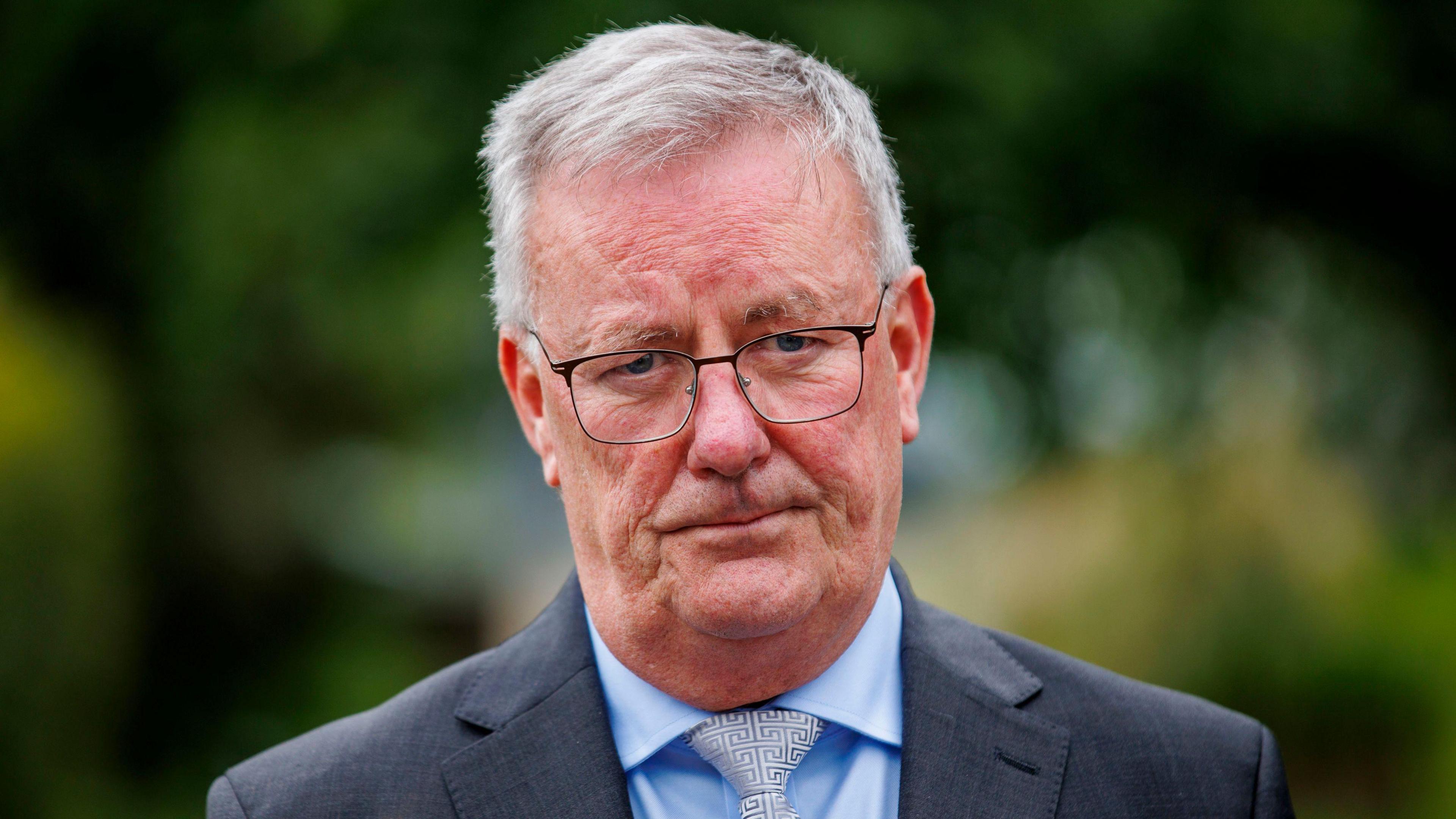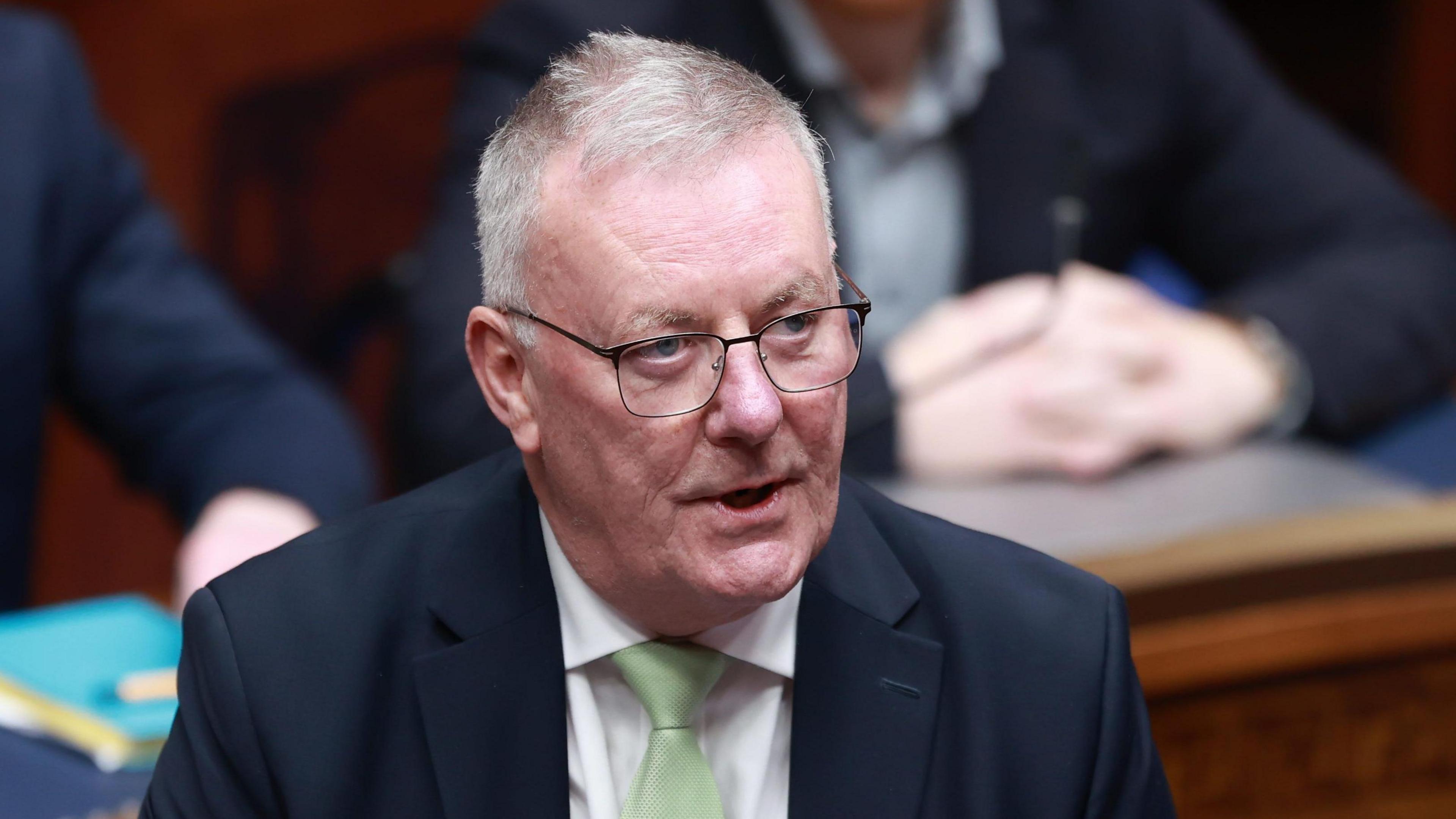Health workers 'need pay parity' as union talks due to resume

John Patrick Clayton from Unison said unions are engaging in negotiations
- Published
Talks are due to resume on Monday after Northern Ireland's health staff unions rejected a renewed pay offer and said they will ballot for industrial action.
John Patrick Clayton from Unison said unions are "engaging constructively" in negotiations.
The DoH offered a 3.6% pay rise from 1 October 2025, with further increases the following year, but unions objected as it would not be backdated to April like it was for colleagues elsewhere in the UK.
Health Minister Mike Nesbitt said his department was "working in good faith" and would continue discussions "within the regrettable financial constraints" it faces.
"This is about a commitment to pay parity and that is the absolute minimum that we are looking to have achieved here," Mr Clayton told BBC Radio Ulster's Good Morning Ulster programme.
"Our members don't want to be in a position where they have to take industrial action in order to secure something that they are entitled to.
"Pay parity is absolutely fundamental to recruit and retain the staff that the health service needs so we need to see commitments that have been made being realised," Mr Clayton said.
Patrick Mulholland from Nipsa told the Nolan Show that "what's on the table at the minute is a real terms pay cut for health workers".
"They [health workers] want parity, they're entitled to parity, it's what they're supposed to get every year and surely when they're working out the funding of the health service they would start with the most essential component which is the staff in it.
"If we do not receive the pay rise that are members need to ensure the future of our health service and ensure the staff are in place – have no doubt about it we will fight," Mr Mulholland said.
Health pay award
BBC News NI understands that one of a number of options the department had put to unions was a two-year award deal covering 2025-26 and 2026-27.
The pay award for 2025-26 was a "3.6% consolidated uplift" effective from 1 October 2025, but this would not be backdated to 1 April as part of this year's award.
The department proposed a 2.5% increase for 2026-27, with an added "short-term uplift" of 1.74% to compensate for pay not being backdated this year.
It is understood none of the options proposed were final and all parties are committed to finding a workable solution.
The executive director of the Royal College of Nursing (RCN), Prof Rita Devlin, said the union had "no choice but to continue preparations to ballot members for strike action in the coming weeks" because "going out of pay parity is not an option we're willing to accept".

RCN director Rita Devlin said the situation is "beyond disappointing"
Talks in Northern Ireland are taking place months after pay settlements were reached elsewhere in the UK under the NHS Agenda for Change framework.
Introduced in 2004 to make pay fair and consistent, the framework is reviewed annually, with new awards typically taking effect from 1 April.
The UK government confirmed a 3.6% rise for England and Wales in May, while the Scottish Government agreed a separate 4.25% deal - part of an 8% two-year offer - in the same month.
'We will fight'

Health Minister Mike Nesbitt has said only half of the money needed to resolve the shortfall for the pay award for healthcare workers had been found
Health pay is a devolved matter in Northern Ireland.
In recent years, health workers have gone on strike to campaign for pay parity with colleagues in the rest of the UK.
In May, Health Minister Mike Nesbitt signed off £200m to go towards this year's pay deal but said the money would need to be found outside his department due to the financial pressures he was already facing.
Earlier this month, the minister said only half of the money needed to resolve the pay award shortfall for healthcare workers had been found.
It contradicted earlier remarks by First Minister Michelle O'Neill that Nesbitt had "found" £100m to help resolve the dispute, with the executive agreeing to put the other half required - £100m - towards it.
The health minister told BBC News NI in a statement: ""My department continues to work in good faith with health unions and professional bodies. Talks are continuing as we acknowledge and respond to their concerns within the regrettable financial constraints we face.
"I very much value the ongoing constructive engagement with the health unions, particularly in terms of identifying and exploring any potential options and common ground, as we seek to work through these difficult issues together. We anticipate further discussions in the coming week."
- Published24 October

- Published22 May
